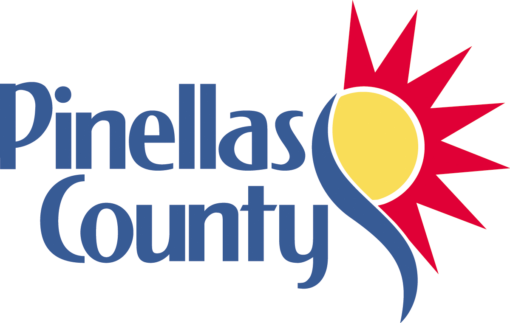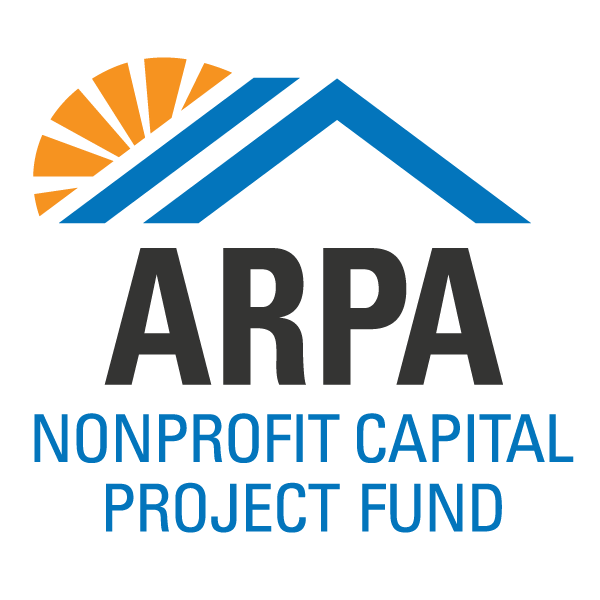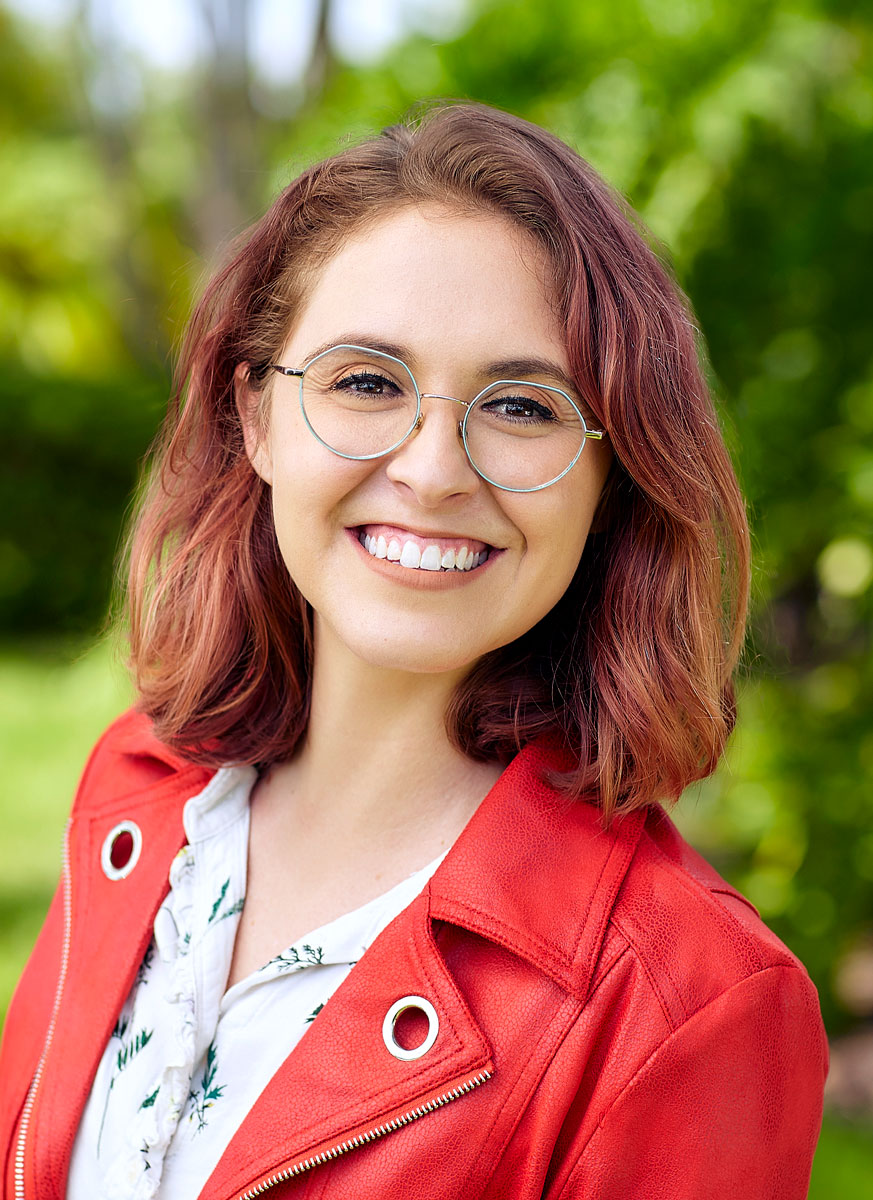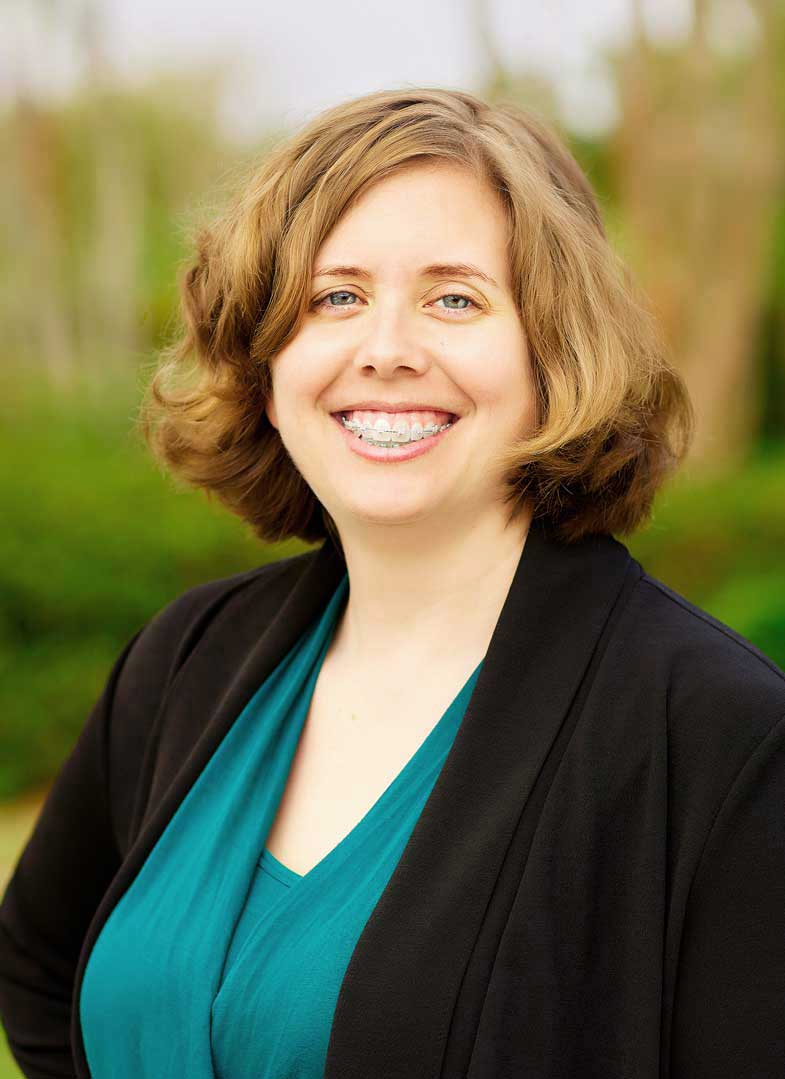ARPA Nonprofit Capital Project Fund


Pinellas Community Foundation, in collaboration with Pinellas County government, is leading the county’s nonprofit granting efforts to support capital needs in response to and in recovery from the COVID-19 pandemic. This project is being supported, in whole or in part, by federal award number SLFRP4653 awarded to Pinellas County Government by the U.S. Department of the Treasury. This granting effort utilizes funds provided by the American Rescue Plan Act (ARPA).
The ARPA Nonprofit Capital Project Fund funds both simple and complex capital needs. Funding decisions are made through a competitive grant process, detailed below.
Grant Portal
Access the PCF grant portal to apply and complete outstanding reports.
Accountability
View applications, meeting minutes and recordings, and more.
Reporting
View grantee contracts and reports on awarded funds.
If you plan to apply, please be sure to review this page in its entirety and view the informational webinars.
Guiding Principles
Due to the success of the Pinellas CARES Nonprofit Partnership Fund, PCF is adapting the same guiding principles to aid in distributing funds efficiently and with the trust of the community.
PCF will exhibit transparency with all transactions from this fund while providing an opportunity for the community to observe and participate in our collective efforts.
PCF will share accountability with our grantees for the outcomes of this project and provide an opportunity to learn from both success and failure.
PCF will act with urgency to ensure funds are deployed to organizations in a responsible yet rapid fashion to meet critical needs without unnecessary delay.
PCF will ensure accessibility to nonprofits of a variety of sizes and abilities to ensure funds reach deeply into the community to provide the necessary support.
PCF will apply a lens of equity to deliberations and decisions to ensure the needs of our most vulnerable community members are addressed.
Eligibility Criteria
This grant opportunity is open to organizations that are:
- 501(c)(3) direct service nonprofits that have been offering programming AND had 501(c)(3) public charity status with the IRS for at least one year as of August 8, 2022
- Providing services in Pinellas County to Pinellas residents
- Able to demonstrate a negative, unremedied economic harm caused by the COVID-19 pandemic
- Able to apply under its own tax-exempt EIN
- Not government entities or government-affiliated institutions (unless it is a 501(c)(3))
Public schools, universities, and hospitals may not apply.
Grantmaking public charities that operate programming may only apply for capital purchases or projects that support direct programming.
Nonprofits whose sole mission is to support another institution financially are not eligible to apply. The organization/entity being supported must qualify to apply.
Organizations with a parent not-for-profit corporation and multiple subsidiaries may submit applications for individual subsidiaries but will be required to prioritize requests.
Local chapters of state or national organizations will be prioritized vs. their state or national counterpart.
Organizations that have previously been recommended to receive an award from this Fund by a PCF committee cannot reapply for another grant in the same track. That is, if you have been recommended for an award for a Small Purchase, you cannot apply for another Small Purchase.
Priority Areas
Based on feedback from the Pinellas Board of County Commissioners, Round 2 of the ARPA Nonprofit Capital Project Fund will prioritize purchases that benefits programming in the following:
- Individuals with Disabilities
- Food Security
- Specialized Healthcare
- Mental Health
- Dental Care
- Substance Use Disorders
- Housing
If your organization demonstrates a history of providing programming within these priority areas, it will receive additional points when scored. You are still eligible to apply if you do not offer programming in these areas.
Priority Populations
In accordance with the aims of ARPA, as well as the aims of PCF and its work in the community, equity is a central goal of distributing this funding. In accordance with U.S. Treasury guidance and Executive Order #13985, the ARPA Nonprofit Capital Project Fund defines equity as the following:
…the consistent and systematic fair, just, and impartial treatment of all individuals, including individuals who belong to underserved communities that have been denied such treatment, such as Black, Latino, and Indigenous and Native American persons, Asian Americans and Pacific Islanders and other persons of color; members of religious minorities; lesbian, gay, bisexual, transgender, and queer (LGBTQ+) persons; persons with disabilities; persons who live in rural areas; and persons otherwise adversely affected by persistent poverty or inequality.
The ARPA Nonprofit Capital Project Fund will prioritize projects and purchases for applicants with leadership and clients that are part of the communities in the definition above. Furthermore, PCF will also prioritize projects and purchases that will be put into operation in geographic areas of high need. Your organization can demonstrate data about geographic need in its application, and will also be able to indicate if your organization operates in areas known as Qualified Census Tracts (QCTs). To see if your organization operates in a QCT, follow this link: Qualified Census Tract Map. Select “Florida” and “Pinellas,” and then select “Qualified Census Tracts.”
Not fitting into the priority populations and geographies specified above does not disqualify an organization from applying, provided it fits the eligibility criteria set forth for this Fund.
Grant Specifics
The ARPA Nonprofit Capital Fund is divided into two grantmaking tracks based on project complexity: small purchases and large projects. These grant tracks are NOT based on the cost of purchases and projects, but rather on the type of purchase or project being requested. Each track has its own request limits, evaluation process and timeline. See the timeline for dates for each part of this process.
Qualifying organizations should submit only one application per funding track, but such applications can contain multiple purchases or projects.


Small Purchases
Small Purchases are the acquisition of capital assets with a useful life of five years and do not involve modifications to real property. Examples are trucks, forklifts, vans, solar panels, and IT equipment. Applications for small purchases will be solicited in two rounds, with an initial total of $2.25 million available in round 1.
Eligible nonprofits can submit an application for a small capital purchase and will be reviewed by a committee of qualified community members. This committee will make recommendations that will later be considered by the Pinellas County Board of County Commissioners for final approval.
Round 1 and 2 for small purchases have both closed. No further rounds are planned.

Large Projects
Large projects are defined as acquisitions of or modifications to real property. Phased projects are permitted.
Two rounds of large projects will be made available.
Round 1 has closed.
Round 2 is in progress. The application period closed at the end of September 2023, and the committee will meet in December 2023. There is no minimum request amount. The maximum request amount for Round 2 is $500,000. There was no Letter of Intent for Round 2. The application asked questions about your proposed project, timeline, and how the proposed project will remedy economic harm caused by the COVID-19 pandemic. Bids and estimates dated 7/5/2023 or later were required.
Proposals will be reviewed by a committee of qualified community members. This committee will make recommendations that will later be considered by the Pinellas County Board of County Commissioners for final approval.
Copying Previous Requests
If you have previously applied for a Large Project and would like your previous request copied over to update and submit for consideration in Round Two, please contact Rose Cervantes. Due to the current inflationary environment, new bids/estimates dated 7/5/23 or later will be required, regardless of a prior submission. The request amount must also fit within the new maximum request amount.
Timeline
Small Purchases
GRANT TRACK
- Round 1 Application Window
- 8/8/22 – 9/8/22
- Round 1 Committee Meetings
- 10/24/22 – 10/25/22
- Round 1 Recommendations Sent to County Commission
- Mid-November
- Round 2 Application Window
- 3/1/23 – 3/31/23
- Round 2 Committee Meeting
- 5/22/23
- Round 2 Recommendations Sent to County Commission
- June 2023
Large Projects
GRANT TRACK
- Round 1 Letter of Intent (LOI) Window
- 8/8/22 – 9/8/22
- LOI Decision Announcements
- Early October
- Application Due
- 1/17/23 at 11:59 PM
- Committee Meeting Date
- Mid-March 2023
- County Commission Review of Recommendations
- 6/13/23
- Round 2 Application Window
- 7/31/23 – 9/29/23
- Round 2 Committee Meeting Date
- 12/12/23
- Round 2 Recommendations Sent to County Commission
- Late December 2023 (Actual Commission Review Date May Be Later)
Review Criteria
The rubric and criteria upon which applications will be scored is available under Sample Documents. Successful applications will demonstrate a negative financial impact caused by the COVID-19 pandemic and a clear public benefit that is to be derived from the proposed capital purchase or project. All proposals will also need to demonstrate the ability to sustain any increase in operating costs that result from the capital project or purchase.
Sample Documents
Below are PDF versions of the Small Purchases application and the Large Project Letter of Intent, as well as the rubrics that will be used to score them.
Request Materials
Small Purchases Application – Round 2 (This round has closed.)
Large Projects Application – Round 2 (This round has closed.)
Rubrics
Large Projects Letter of Intent Rubric – Round 1 (This round has closed.)
Large Projects Full Proposal Rubric – Round 1 (This round has closed.)
Small Purchases Rubric – Round 2 (This round has closed.)
Large Projects Application Rubric – Round 2 (This round has closed.)
Grant Payment
Grants made through this process may be on a reimbursement basis. PCF will have some flexibility in advancing payment for small capital purchases if the organization can purchase the item within 30 days of receiving advance payment. Large project payment arrangements will be developed with the awarded organizations following a reasonable schedule.
Community Resources
The resources indicated below are not officially associated with the operation of the ARPA Nonprofit Capital Project Fund and PCF has no direct involvement with these initiatives. However, their activities and services may help you in submitting a funding request or being able to handle a reimbursement-basis grant.
Loan Fund
Should your organization need assistance in making purchases if awarded a reimbursement-basis grant, the Foundation for a Healthy St. Petersburg offers a loan fund that offers interest-free and zero-fee loans for this purpose. PCF does not provide input or make any decisions regarding the organizations approved to receive assistance.
Note: All questions regarding the Loan Fund can be emailed to Julie Rocco, Director of Grants Management and Administration at FHSP.
Small Business Enterprises
If your organization needs assistance finding vendors to get estimates and/or bids for your grant request to this Fund, you can search in Pinellas County’s database of registered Small Business Enterprises (SBEs). PCF does not directly endorse any vendor in this database and is merely providing it as a search resource.
Technical Assistance
This granting program has extremely specific criteria around demonstrating community need, negative financial impact, and timeline considerations. If you need help developing your application, you can request such assistance below.
This form should not be used for bugs or issues using the grant portal. Those questions can be directly emailed to Rose Cervantes, ARPA Program Officer.
By entering data into this form, you are NOT subscribing to any mailing lists. Any information submitted that is not related to technical assistance for the application will not receive a response. Furthermore, any information submitted through this form may be subject to public record.
We Can Help


Post-Award Information
Frequently Asked Questions
Fund Overview
What is the ARPA Nonprofit Capital Project Fund?
The ARPA Nonprofit Capital Project Fund is a Pinellas Community Foundation fund created by a nearly $18 million grant from Pinellas County Government meant to help with local capital needs of Pinellas County nonprofits. This fund allows nonprofit organizations to submit both small and large capital proposals.
These funds come from the American Rescue Plan Act (ARPA). Congress designated a portion of funds go to local governments to help communities recover from the economic impact of the COVID-19 pandemic. The Pinellas County Board of County Commissioners then allocated a portion of funding to fulfill nonprofit capital needs.
What organizations are able to receive assistance?
Eligibility criteria for organizations are listed above.
How much assistance is available through this fund?
The initial allocation is a total of $17.97 million. For round one, $2.25 million was earmarked for small purchases of $200,000 or less, and $10 million was reserved for more complex capital projects. Round two budgets will posted shortly.
What documentation is required to apply for this funding?
You will also need to upload financial statements (audited if available), your organization’s most recent Form 990 and board-approved budget, and a current list of your Board of Directors. Your organization will also need to display a negative economic impact from the COVID-19 pandemic, and may use fiscal documentation to do so.
Bids and estimates will be required for all Small Purchase and Large Projects applications in round two. For Small Purchases, two bids/estimates will be required if your request is under $75,000. If it over $75,000, you will be required to upload three bids/estimates.
What are some examples of uses of the funding?
Small Purchases
PCF frequently refers to small purchases as capital assets that one can move from one place to another. Examples of small purchases include but are not limited to: laptops, tablets, servers, vehicles, refrigerators, food service equipment, shelving, medical equipment, furniture, and musical instruments.
Large Projects
PCF frequently refers to large projects as capital assets and modifications that one cannot move from one place to another, and involve the acquisition or modification of real property. Examples of large projects include but are not limited to: HVAC and air filtration systems, building expansions, new building construction, door frame widening, resurfacing a parking lot, rewiring electric systems, and new bathrooms/showers.
How is the County Commission involved in this process?
The Pinellas County Board of County Commissioners approved a contract with Pinellas Community Foundation to administer these ARPA funds. While the application process is open, all communications regarding the process should be directed to PCF and designated ARPA staff members.
A grant committee will be convened for each grant round of this fund, which will then make recommendations to the Board of County Commissioners for final approval at a public meeting. Ultimately, the Board of County Commissioners retains final authority over funding decisions.
Is the funding limited to certain cities or counties?
Funding is limited to nonprofits serving the residents of Pinellas County, and any purchase or project must be put into use in Pinellas for the entirety of its useful life. If your organization chooses to submit an application, you will be required to give a brief history of your work in Pinellas County.
How do individuals get help from the Fund?
This fund does not provide financial assistance to individuals. If you are in need of financial assistance, please call 2-1-1 from your phone or visit 211tampabaycares.org.
How will the Fund be managed?
Pinellas Community Foundation has over 50 years of experience managing assets provided in trust by the community. The Funds will be held in trust and checking accounts for the sole purpose of distribution under the guidelines which established the fund. Depending on how an organization’s financial status aligns with federal guidance, grant payment may only be provided on a reimbursement-basis. The funds will be transferred to the organization via check.
My organization does not have the resources to manage a reimbursement-based grant. Is assistance available?
Yes. The Foundation for a Healthy St. Petersburg, in collaboration with the Tampa Bay Black Business Investment Corporation, operates a loan fund that provides an interest-free, zero-fee loan to those who qualify.
Please note: PCF does not operate this loan fund, and all questions regarding the Fund must be directed to Foundation for a Healthy St. Petersburg.
Who is making decisions about grant awards?
Grant committees composed of qualified community members will review all proposals and will craft recommendations that will later be sent to the Pinellas Board of County Commissioners for final approval. Committee meetings will be live-streamed, and organizations whose proposals are being reviewed by the committee will be invited to attend. Committee members may ask questions of applicant organizations, and organizations will have three minutes to respond to each question. There will also be time for public comment.
How will applications be scored?
The rubric and criteria upon which applications will be scored will be made available before submissions are due. Most critical to a successful application will be the demonstration of a negative financial impact caused by the COVID-19 pandemic, and a clear public benefit that is to be derived from the proposed capital purchase or project. All proposals will also need to demonstrate the ability to sustain any increase in operating costs that result from the capital project or purchase.
What information will be available to the public from this grant process?
All submitted applications will be available for public review. Partially completed applications will be available upon request. Committee meetings will be open to the public to view. Minutes and recordings of committee meetings will be published within one week of the meeting.
Capital Projects
Will the Federal government own buildings built under the grant, or would this be a flat-out transfer?
Since nonprofits are considered beneficiaries, this will be a full transfer and the federal government would not own the facilities funded. Any equipment or real property acquired using these funds shall vest with the awarded grantee.
Can this Fund contribute to capital campaigns?
PCF actively discourages requests involving capital campaigns that have not begun construction or do not have a concrete construction commencement date, as funding from the ARPA Nonprofit Capital Project Fund is not meant to serve as a contribution to capital campaigns. ARPA funding may be used towards purchases and projects that an active capital campaign is aiming to support. For example, should an organization need a final $500,000 to complete a capital campaign for building renovations, a request may be submitted to this Fund to do so. All purchases and projects involving that $500,000 request must 1) repair a COVID-19 pandemic harm, 2) serve a public benefit and help resolve a community need, and 3) fit within the other evaluation criteria that will be released along with the application. Furthermore, all proposed small purchases and/or large projects must be able to be completed before the spending deadline of December 31, 2026.
Will there be requirements to comply with Davis-Bacon?
Davis-Bacon does not apply per U.S. Treasury’s Final Rule; however, applicants should consider the risk involved in managing a construction project given prevailing wages in the current labor market. Since nonprofits are considered beneficiaries, requirements related to procurement and purchasing will be alleviated.
Note: if your organization requests ARPA funding to support a construction project that does require Davis-Bacon compliance, then Davis-Bacon standards are required.
Will a match be required?
A match is not required for either the simple or complex track. However, organizations that demonstrate a match may be prioritized in order to better distribute the available funding.
Are awards “all or nothing” or will there be partial awards?
PCF intends to allow committee recommendations for partial awards provided such an award is proportional to the negative economic impact experienced through the COVID-19 pandemic and that such an award would still allow a purchase or project to be successful. Ultimately, the Pinellas County Board of County Commissioners retains final authority over recommended awards.
Does receiving ARPA funding preclude applying for other funds from either Pinellas County or Pinellas Community Foundation?
No. Your organization may still pursue other funding opportunities from both Pinellas County and Pinellas Community Foundation.
Will proposals be accepted for phased programs?
Yes. However, it is absolutely critical that an organization demonstrate that all ARPA-funded activities described in their proposal would be able to be completed before the spending deadline of December 31, 2026. If this is not feasible for your proposed project, your organization should not apply.
Can this Fund reimburse my organization for a capital purchase or project that has been completed since the start of the pandemic?
No. This fund is for new purchases and projects. However, should your organization have a large construction project underway and is seeking support for a phase of the project not yet started, your organization may submit such a request.
Will this funding cover increased operational costs as a result of funded project(s)?
No. Your organization will be required to describe how any increase in operational costs will be absorbed and funded by your organization. An inability to demonstrate sustainability will negatively impact your funding request and most likely lead to a denial.
If your capital purchase has an accompanying option for an extended warranty or additional protection that may help prevent additional operating costs in the future, you may include the cost of that in your proposal’s budget. However, this must be a one-time expense.
Are communities located in QCTs the only groups considered disproportionately impacted by COVID?
The Federal government used Qualified Census Tracts (QCT) to quickly identify disproportionately impacted communities who could benefit from COVID relief in their interim rule. The ARPA Final Rule has been expanded, and Treasury now presumes the following households and communities are disproportionately impacted by the pandemic:
- Low-income households and communities [185% Federal Poverty Guidelines (FPG) or 40% Area Median Income (AMI)]
- Households residing in Qualified Census Tracts
- Households that qualify for certain federal benefits (such as SNAP and TANF)
- Households receiving services provided by Tribal governments
- Households residing in the U.S. territories or receiving services from these governments.
Organizations with their headquarters in a QCT and/or organizations that directly serve communities in QCTs will score higher according to the rubric developed for this program.
Organizations may also identify other disproportionately impacted groups. If your organization serves communities outside of a QCT who have been historically disadvantaged or are in a high-need area, then you will need to demonstrate their need and disproportionate impact in your application. Provided your organization thoroughly demonstrates this in its application, it will receive a higher score.
If you have any questions, please submit a technical support request and the PCF ARPA team will assist you in identifying if the communities you serve would be viewed as being disproportionately impacted.
Where can I access a list of SBE vendors?
If your organization needs assistance finding vendors to get estimates and/or bids for your grant request to this Fund, you can search in Pinellas County’s database of registered Small Business Enterprises (SBEs). PCF does not directly endorse any vendor in this database and is merely providing it as a search resource.
Application
Will there be a grant evaluation rubric?
Yes. Please see the Sample Documents section above to view the rubrics.
Who will be on the scoring committee?
PCF is aiming to assemble a diverse scoring committee composed of Pinellas community members. Diversity will be based on geographic location, industry, personal identity, lived experience, and experience with nonprofits and/or capital projects. Applicants will meet committee members at the meeting in which their applications will be reviewed.
Applicants are forbidden from contacting PCF review committee members to discuss their applications.
How long will applications stay open?
Please see timeline for specific information about application and decision timelines.
Can an organization apply for both Small Purchases and Large Projects?
Yes. However, each request will be evaluated separately, and all requests must be able to demonstrate how the purchase/project aims pandemic recovery and repairs COVID-19 pandemic harm. However, once an organization receives an award in a certain track, it cannot receive another. That is, you can only be granted one Small Purchase award and one Large Project award.
Why are all applications public?
Because these funds are from a government source, PCF wants to ensure that this is a trust-filled and transparent process. Therefore, all applications are public, along with committee meetings and minutes from such meetings.
How can I demonstrate a negative economic impact if my financials do not show a loss?
Not all negative economic impacts may reflect in your budget or books, especially if you have moved funding around to respond to issues that arose during the pandemic. You can also demonstrate negative economic impact if you had difficulty retaining staff, you lost productivity due to staff illness, or the volume of services drastically increased. You can share these details in your narrative. Data demonstrating productivity loss and costs due to increased service volume will strengthen your application.